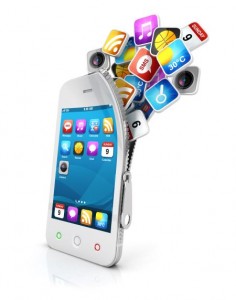Market Research Store announces that it has published a new study Global Smartphones Market 2015 – Shares, Strategy, and Forecasts, Worldwide, 2012 to 2018. The 2012 study has 345 pages, 105 tables and figures. Worldwide smartphone markets continue to achieve significant growth as devices access the Internet, achieve almost universal penetration, and support machine to machine (M to M) communications. Feature sets continue to evolve.
According to Susan Eustis, lead author of the study, “Over one-half of all smartphones in the global market are made by Apple and Samsung. Samsung supplies Apple with some of the components used in the iPhone and iPad, making Samsung a major market participant. Even as Apple defeated Samsung in a patent dispute, the smartphone vendors are not likely to see much change, as they both continue to lead the market.”
Request For Sample Report Here:
http://www.marketresearchstore.com/report/smartphone-market-1144#requestSample
The study documents the 2011 and H1 2012 quarterly shipments in dollars and units. It provides regional shipment analysis by company, a far more granular look at the industry than is available anywhere else at any price.
Smartphone principal competitive factors include price, product features, relative price/performance, product quality and reliability, design innovation, a strong third-party software and peripherals ecosystem, marketing and distribution capability, service and support, and corporate reputation.
The expanding market opportunities related to mobile communication and media devices include transmission of digital data into and out of the Smartphone. The markets are highly competitive. The competition is expected to intensify significantly.
The features of the smartphones and applications are evolving. Products support collaboration. Solutions are competitive. The industry is characterized by aggressive pricing practices, frequent product introductions, evolving design approaches and technologies, rapid adoption of technological and product advancements by competitors, and price sensitivity on the part of consumers and businesses.
Factors that influence commercial success in the wireless device and services market relate to usability above all: The designs of the iPhone are genius designs because of the usability they bring. Development of an integrated hardware, software and service platform to support multiple wireless network standards is an essential aspect of market participation.
Do Inquiry Before Purchasing Report Here:
http://www.marketresearchstore.com/report/smartphone-market-1144#reportPriceDetails
All markets everywhere are changed forever because of the remarkable, rapid success of the iPhone based on its usability. Intuitive use made popular by Bill Gates with the Microsoft Windows operating systems is being extended to all the smartphone operating systems offerings.
End-to-end wireless solutions for seamless access to information, including email, voice, instant messaging, short message service (“SMS”), Internet and intranet-based browsing, multimedia content and features, and consumer and business applications is part of a vendor platform approach to participating in the market.
Integration and focus of research and development in radio frequency, hardware and software design, OS development, antenna design, circuit board design, integrated circuit design, power management, industrial design, and manufacturing engineering result in cost-effective solutions that offers the ability to multi-task applications. A strong web browsing experience, a compelling platform for third party application development, ease of use, small size and attractive design, efficient bandwidth use, lengthy battery life, robust security and a significant return on investment to customers are essential aspects of successful vendor participation in the wireless device and services market.
Through development of an integrated hardware, software and service platform that support multiple wireless network standards, end-to-end wireless solutions provide seamless access to information. Email, voice, instant messaging, short message service (“SMS”), Internet and intranet-based browsing, multimedia content and features, and consumer and business applications are part of wireless services driving significant growth in data traffic.
Each smartphone platform is based on different operating system technologies and accompanied by its own set of tools with which developers can develop applications. The ease of developing for a platform as well as the potential size of the addressable market and business opportunity are factors developers and other industry participants need to understand.
Hardware manufacturers, software providers, publishers, entertainment providers, advertisers and e-commerce specialists need to consider operating system issues when deciding where to focus their resources. In the smartphone and tablet segments, success for manufacturers is primarily shaped by their ability to build, catalyze or be part of a competitive ecosystem where these different industry participants are forming increasingly large communities of applications and component suppliers.
Market participants seek to achieve a mutually beneficial partnership in order to bring their offerings to market. A vibrant ecosystem creates value for consumers, giving them access to a rich and broad range of user experiences. Ecosystems in the smartphone segment include those based around software platforms such as iOS, Android and Windows Phone, as well as Blackberry OS.
Worldwide smartphone market revenues are forecast to grow 42% year-over-year from $152 billion in 2011 to $1.6 trillion by 2018. This is in the context of a world communications infrastructure that is changing. Technology is enabling interaction, innovation, and sharing of knowledge in new ways. Smartphones promise to bring significant new mobile communications capability making the Internet available for increasingly productive, efficient use.
Companies Profiled
Market Leaders
Samsung
Nokia
Research In Motion (RIM)
Apple
ZTE
HTC
Market Participants
Alcatel-Lucent
Ericsson
Google / Motorola
Huawei Technologies
LG
NEC Corporation
Sony Corporation

 BlackBerry 10 now available
BlackBerry 10 now available